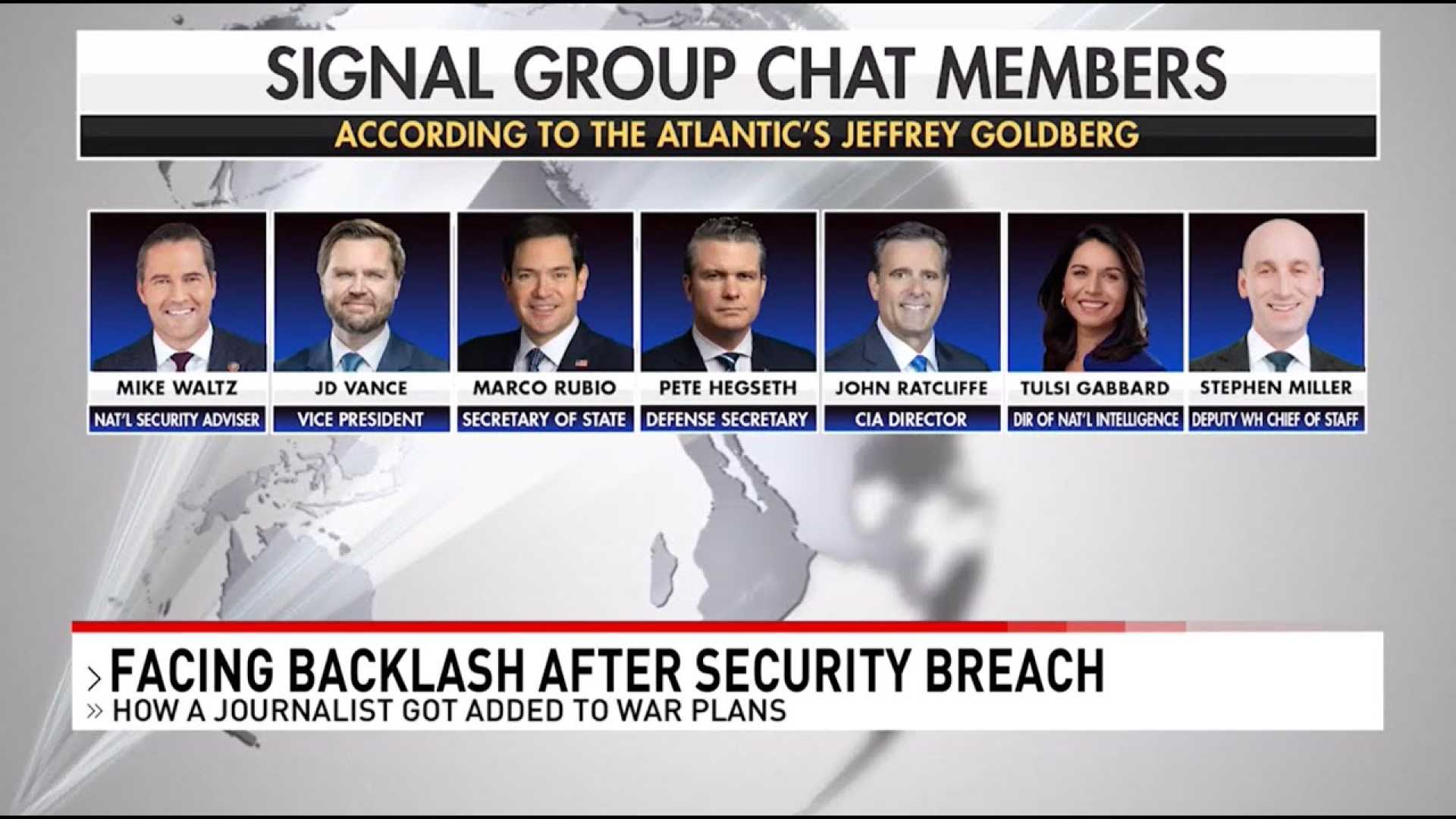Politics
Concerns Rise Over Security Breach in Trump Administration’s Signal Chat

WASHINGTON, D.C. — Following a significant security breach involving the Trump administration’s communication channels, concerns have escalated regarding the use of Signal for discussions regarding military operations. The controversy erupted on Monday when Secretary of Defense Pete Hegseth was questioned about sharing sensitive plans regarding an attack on Yemen via the encrypted messaging app.
During a Senate Intelligence Committee hearing on Wednesday, Hegseth, alongside other key officials, defended their communications, asserting that no classified information was exchanged. “Nobody was texting war plans. And that’s all I have to say about that,” Hegseth responded when pressed for details.
National Intelligence Director John Ratcliffe echoed similar sentiments, stating, “My communications, to be clear, in the Signal message group were entirely permissible and lawful and did not include classified information.” He added that the information shared was mischaracterized by the media.
In a statement on behalf of the administration, White House Press Secretary Karoline Leavitt reiterated that there was no classified information shared, yet objected to the publication of the Signal messages, emphasizing the conversation was intended to be an internal and private deliberation.
Despite reassurances from administration officials, experts have voiced concerns over the implications of using a platform like Signal for such sensitive discussions. Jeffrey Goldberg, the editor-in-chief of The Atlantic, was inadvertently included in the Signal group when National Security Adviser Michael Waltz invited him, raising further questions about the internal protocols related to national security communications.
The conversations included real-time updates on military actions, with Hegseth’s messages indicating a coordinated strike against Houthi positions in Yemen. At 11:44 a.m. ET on the day of the attack, Hegseth informed the group, “TEAM UPDATE: TIME NOW (1144et): Weather is FAVORABLE. Just CONFIRMED w/CENTCOM we are a GO for mission launch.”
Experts warn that if this information had been intercepted by hostile entities, it could have jeopardized American military personnel involved in the operation. As one expert noted, the timeframe during which Hegseth communicated was critical: “If this data had fallen into enemy hands before the strikes, it could have compromised the safety of our forces.”
The incident highlights a broader concern regarding the security of communications within the U.S. government and the potential vulnerabilities that can arise from using unclassified messaging platforms for operational discussions.
The White House has yet to address specific elements of the texts that officials deem sensitive, leading to ongoing public interest in their contents. The CIA requested the withholding of one individual’s name mentioned in the texts for security reasons, yet emphasized the need for transparency regarding the potentially damaging communications.
Amid the varying responses from administration officials, the ramifications of the Signal chat breach remain a focal point for policymakers and security experts alike, as the debate over national security practices in the digital age intensifies.












